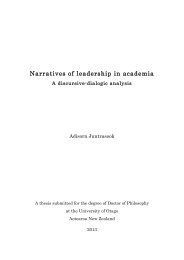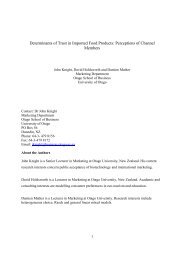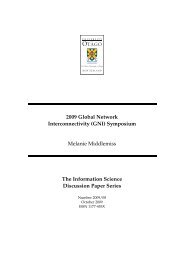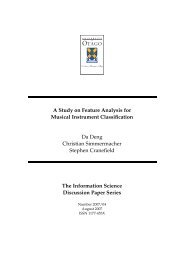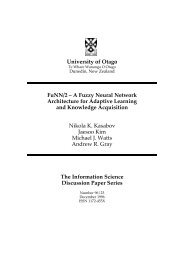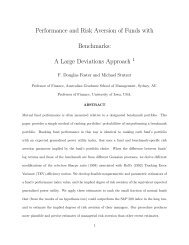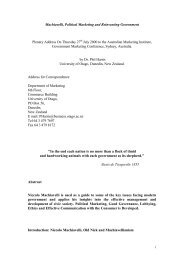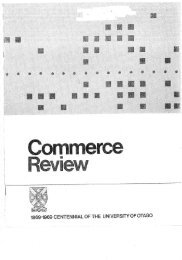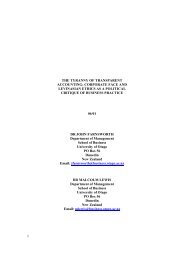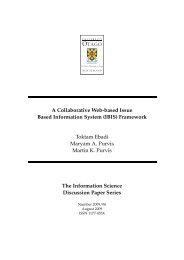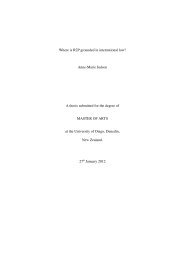University of Otago Cadastral - Otago University Research Archive
University of Otago Cadastral - Otago University Research Archive
University of Otago Cadastral - Otago University Research Archive
Create successful ePaper yourself
Turn your PDF publications into a flip-book with our unique Google optimized e-Paper software.
At independence,Kenya embarked on a programme <strong>of</strong> Africanization <strong>of</strong> the farm structure<br />
with financial assistance from the British Government, the Commonwealth Development<br />
Corporation and the World Bank. The programme resulted in new large<br />
landowners who<br />
were members <strong>of</strong> Parliament, Cabinet Ministers, senior civil servants, and urban<br />
businessmen. While these groups have the influence and/or money to exploit<br />
opportunities, they are not necessarily the best agricultural entrepreneurs. The point<br />
the new<br />
is that<br />
the introduction <strong>of</strong> a land market, which is one <strong>of</strong> the reasons <strong>of</strong>ten cited for introducing a<br />
cadastral system, does not solve the problems <strong>of</strong> poverty<br />
associated with land concentration<br />
in agrarian economies. More pertinent<br />
to cadastral reform, Shipton [l988, 106] reported<br />
the presence <strong>of</strong> wealth biases in the adj ndication process in Luoland in Kenya. Officially,<br />
the adjudication committee were unpaid. However, disputants provided<br />
with food and<br />
drink on days they met. Poorer farmers who could not afford the entertainment backed<br />
away from their disputes.<br />
4.4 lndividualisation <strong>of</strong> Land Ownership<br />
lndividualisation or privatisation refers to processes which convert the ownership<br />
<strong>of</strong> land<br />
from the traditional land owning group to individual ownership. As already mentioned, a<br />
common feature <strong>of</strong> indigenous land tenure systems in developing countries is the group<br />
ownership <strong>of</strong> land by different forms <strong>of</strong> community organisations. Equally<br />
common to<br />
most land reform proposals for developing countries is the belief that this group ownership<br />
is bad and has to be replaced by individual or private ownership. One <strong>of</strong> the arguments<br />
against communal ownership is the difficulties in determining who has the proper authority<br />
to conduct transactions in the land, and for people who want to borrow money with land<br />
collateral to obtain the necessary consent <strong>of</strong> the members <strong>of</strong> the group. Moyana {l984, 7]<br />
points out that the success <strong>of</strong> any land-tenure system must be judged by the degree to<br />
which it satisfactorily<br />
meets the needs <strong>of</strong> the people it is designed<br />
to serve. These<br />
difficulties must have been the intension <strong>of</strong> the ancestors who devised the system, because<br />
they seem to have been designed to protect the rights <strong>of</strong> the unborn generationsas well as<br />
<strong>of</strong> the dead. Okoro further explains that:<br />
Group property ensures group unity, solidarity and interdependence.<br />
These characteristics were more<br />
significant in the not-so-distant past when<br />
might and strength<br />
rather than the rule <strong>of</strong> law were instruments for the<br />
preservation <strong>of</strong> life and property, not only<br />
community. [Okoro l966, 3]<br />
<strong>of</strong> the individual but <strong>of</strong> the<br />
I5



